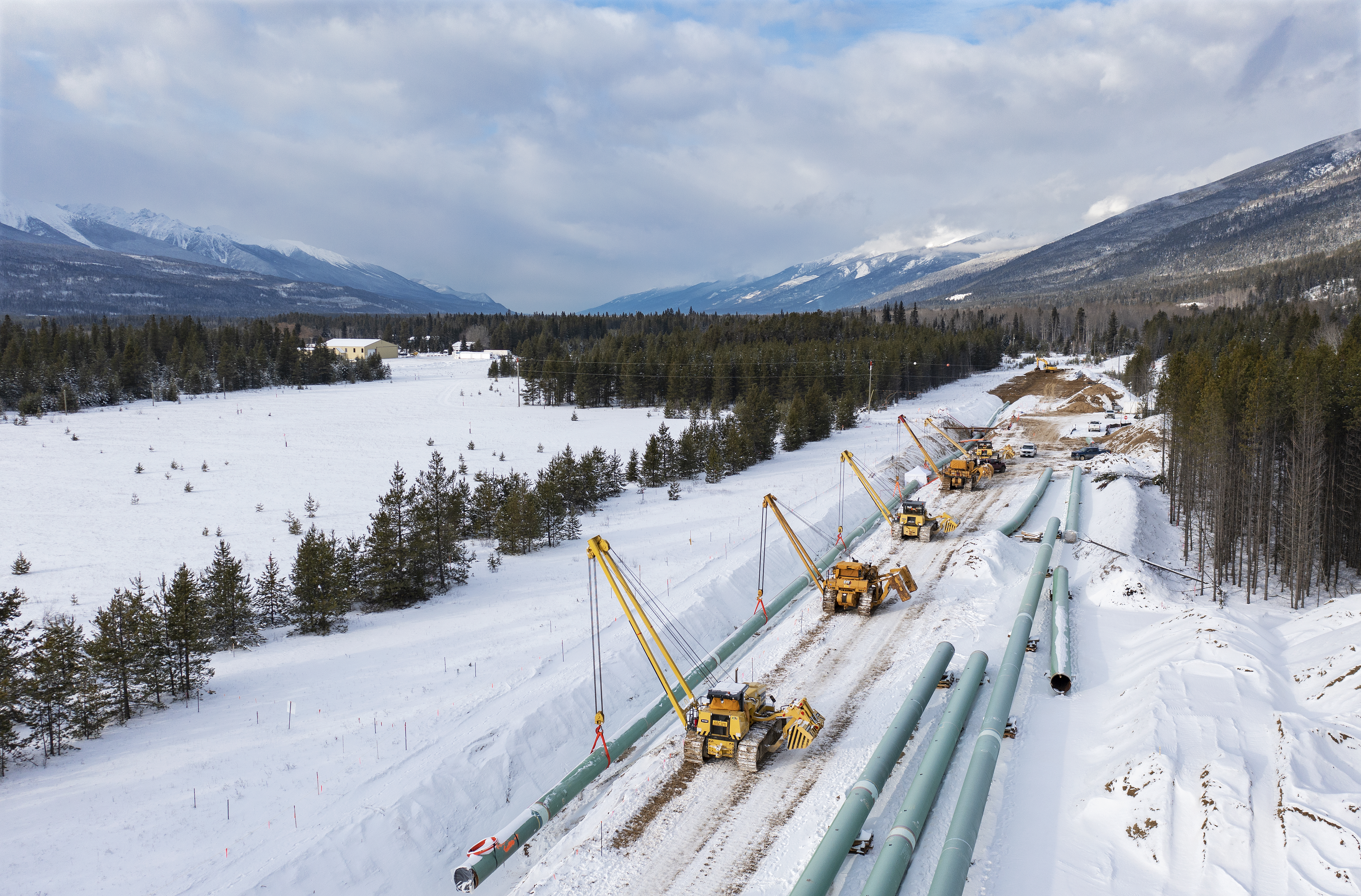Canada's Trans Mountain Seeks Toll Approval for Expanded Oil Pipeline
(Reuters) — Canadian government-owned Trans Mountain Corp. (TMC) has applied to regulators for tolls on its long-delayed 590,000 barrel-per-day (bpd) pipeline expansion to Canada's west coast, noting shipping fees would increase if project costs mount.
The Trans Mountain Expansion (TMX) will nearly treble the flow of crude from Alberta's oil sands to Burnaby, British Columbia to 890,000 bpd, but the project has struggled with regulatory hurdles, environmental opposition and surging costs.
In March, TMC said the expansion would cost C$30.9 billion ($23 billion), more than four times the original estimate, and that the final bill could rise further.
The tolling application is a sign TMX, due to start shipping in the first quarter of 2024, is nearing the finish line more than a decade after it was first proposed.
The pipeline will struggle to recoup the billions spent during construction, analysts said, adding that the Canadian government, which bought it in 2018 to ensure it got built and plans to sell it once complete, faces a substantial loss.
"TMX is really trapped between a rock and a hard place. It is unlikely to be able to charge a rate compatible with earning viable returns on a C$31 billion investment," said Morningstar analyst Stephen Ellis, who estimates the pipeline will be worth around C$15 billion once complete.
In a June 1 application to the Canadian Energy Regulator (CER), TMC proposed a base toll of C$11-C$12 ($8-$9) a barrel, depending on the type of crude shipped and its final destination. Any shipper committing to a term longer than 15 years or more than 75,000 bpd would receive a discount.
The filing said the toll is based on the latest project cost estimate and is not final.
This could increase by around C$0.07 a barrel for every extra C$100 million spent on uncapped costs, which are currently estimated at C$9.1 billion. Uncapped costs include two specific segments of the pipeline and other factors, including indigenous and community consultation.
"The tolls adjust for changes in the cost of the project based on a formula specified in the contract," a Trans Mountain spokesperson said in an email.
BMO Capital Markets analyst Ben Pham said in a note the TMX tolls compare to a toll of $8-$10 a barrel for Canadian crude to reach the U.S. Gulf Coast, "well above" the initial TMX expected toll of around $4.50 a barrel.
A month ago, rival pipeline company Enbridge agreed a new lower toll with shippers on its Mainline network, which transports the bulk of Canadian crude to the U.S.
After years of limited pipeline space, the Canadian oil market will have excess export capacity from next year, meaning TMX will be vulnerable to being undercut by rivals, Morningstar's Ellis said.
There are 10 committed shippers on the pipeline, including Cenovus Energy and MEG Energy. Both companies declined to comment.
TMC asked the regulator to approve the tolls by Sept. 14.
($1 = 1.3428 Canadian dollars)
Related News
Related News

- Kinder Morgan Proposes 290-Mile Gas Pipeline Expansion Spanning Three States
- Enbridge Plans 86-Mile Pipeline Expansion, Bringing 850 Workers to Northern B.C.
- Intensity, Rainbow Energy to Build 344-Mile Gas Pipeline Across North Dakota
- Tallgrass to Build New Permian-to-Rockies Pipeline, Targets 2028 Startup with 2.4 Bcf Capacity
- U.S. Moves to Block Enterprise Products’ Exports to China Over Security Risk
- U.S. Pipeline Expansion to Add 99 Bcf/d, Mostly for LNG Export, Report Finds
- A Systematic Approach To Ensuring Pipeline Integrity
- 275-Mile Texas-to-Oklahoma Gas Pipeline Enters Open Season
- LNG Canada Start-Up Fails to Lift Gas Prices Amid Supply Glut
- TC Energy’s North Baja Pipeline Expansion Brings Mexico Closer to LNG Exports





Comments